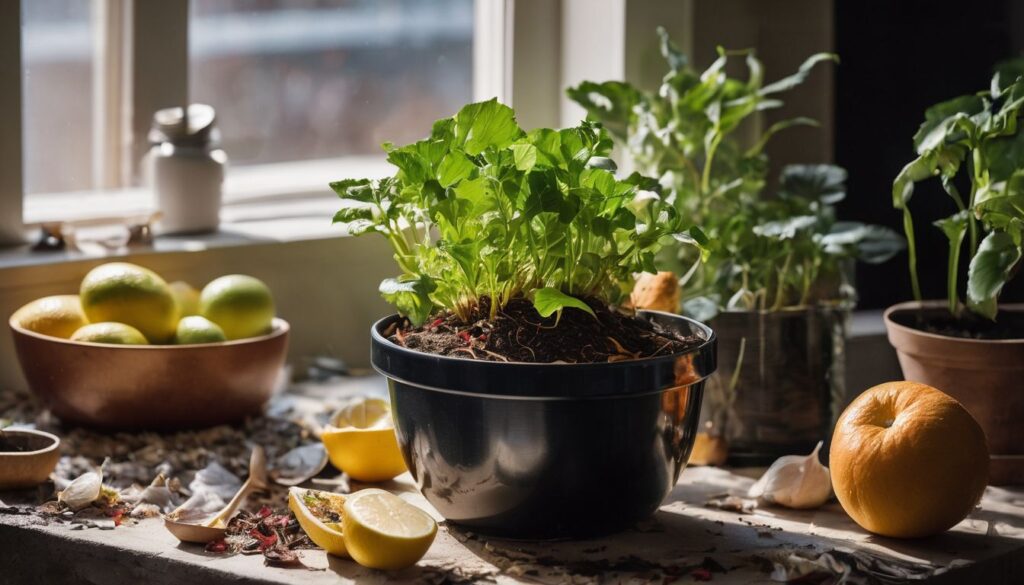Are you an apartment dweller who feels composting is simply out of your reach due to limited space? You might be surprised to learn that about 25% of our waste consists of food scraps, which could potentially be transformed into valuable plant nutrients.
This post will guide you through various techniques and tips for successful indoor composting, even in the smallest apartments. Ready to turn your food waste into treasure? Let’s dig in and discover composting when you live in an apartment.
Key Takeaways
- Composting in an apartment is possible even with limited space and no outdoor area by using indoor composting methods like vermicomposting or bokashi composting.
- Odor and pest issues can be minimized by properly managing the composting system, such as adding carbon-rich materials to absorb odors and maintaining a proper balance of food scraps and other materials.
- Apartment dwellers can choose from various indoor composting options, including vermicomposting with worms, bokashi composting using fermentation, or electric composters.
- When choosing a composting method for your apartment, consider factors such as space restrictions, lifestyle and commitment level, odor control needs, and maintenance requirements.
Challenges of Composting When You Live In An Apartment
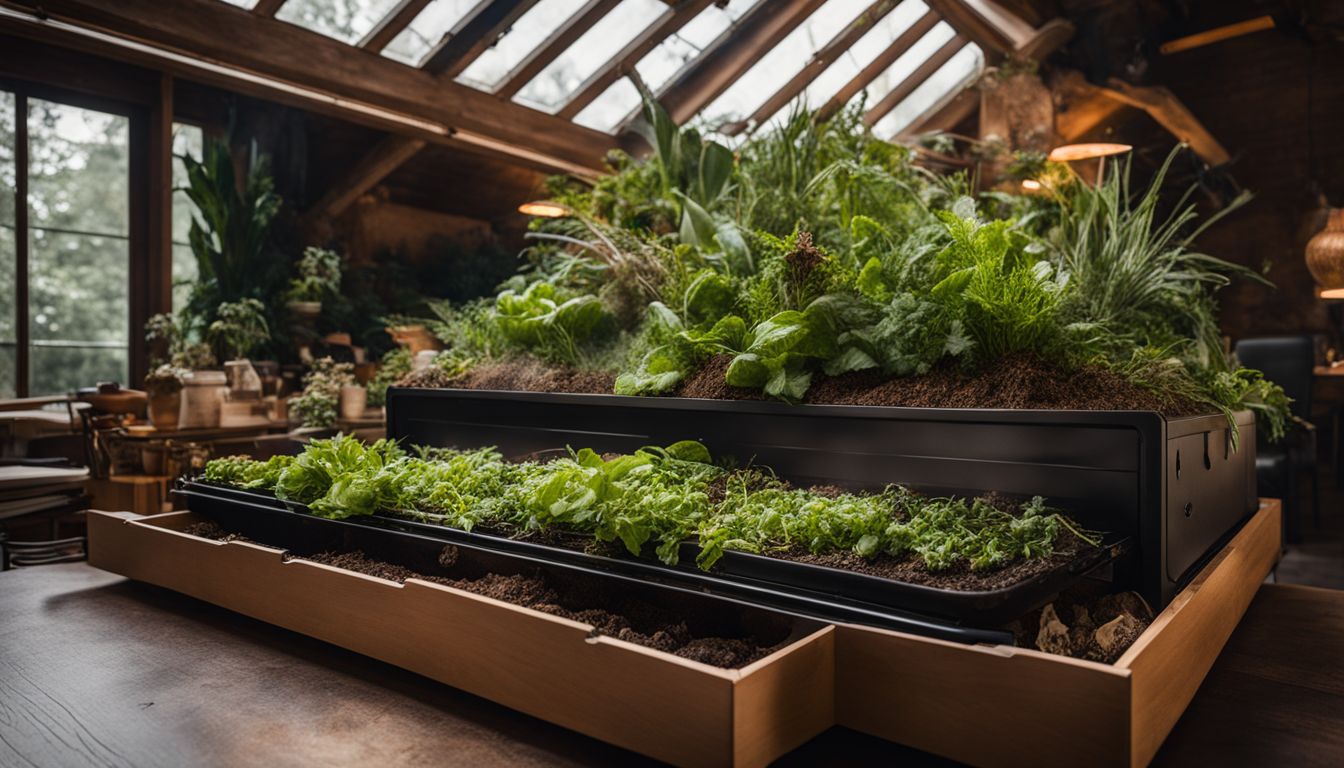
Limited space and lack of outdoor area pose significant challenges for composting in an apartment, along with potential issues such as odor and pests.
Limited space
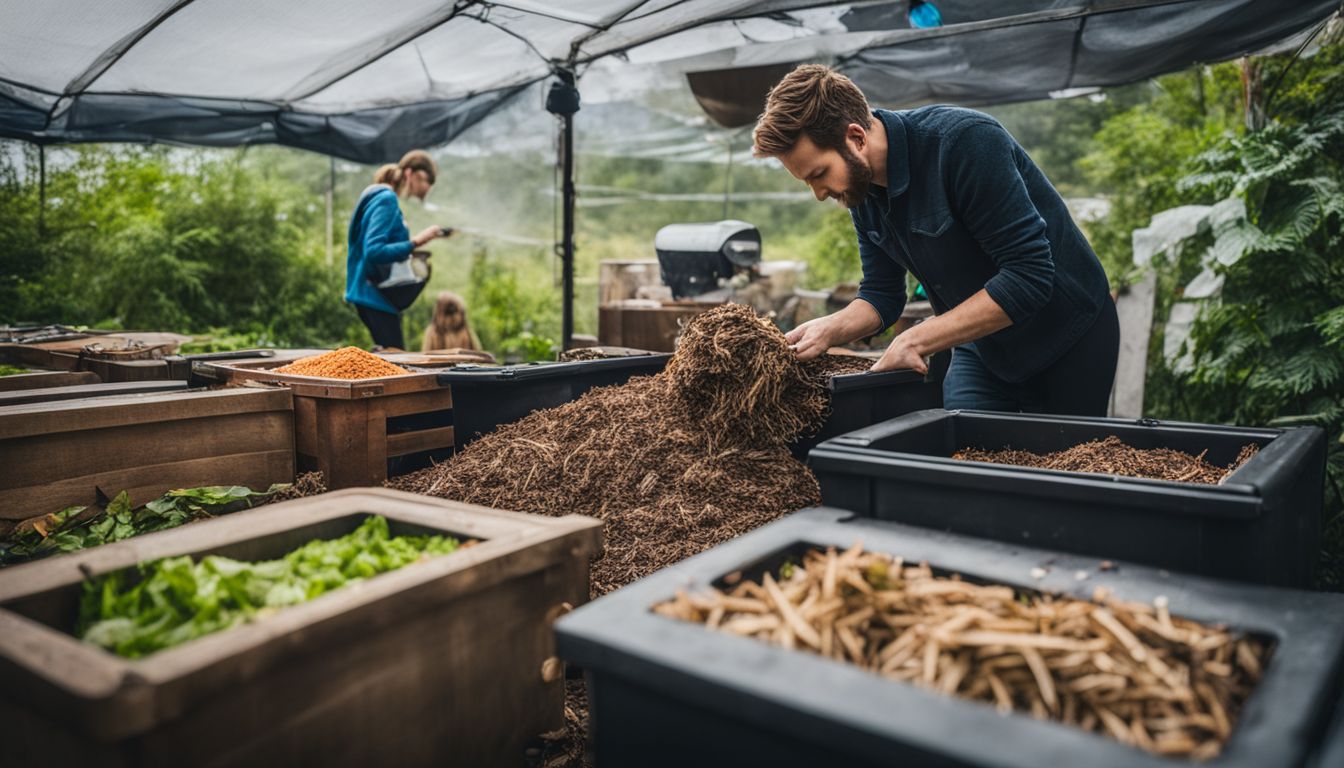
Set space aside for composting in your apartment. Even a small spot works well. You can use two plastic bins with lids and shredded newspaper to start. It’s true that the amount of waste you can compost may be less in an apartment.
But even so, it helps reduce landfill waste and give food to your plants! Plus, worm bins like the Sacred Resources Composter fit well in tight spaces too!
Lack of outdoor area
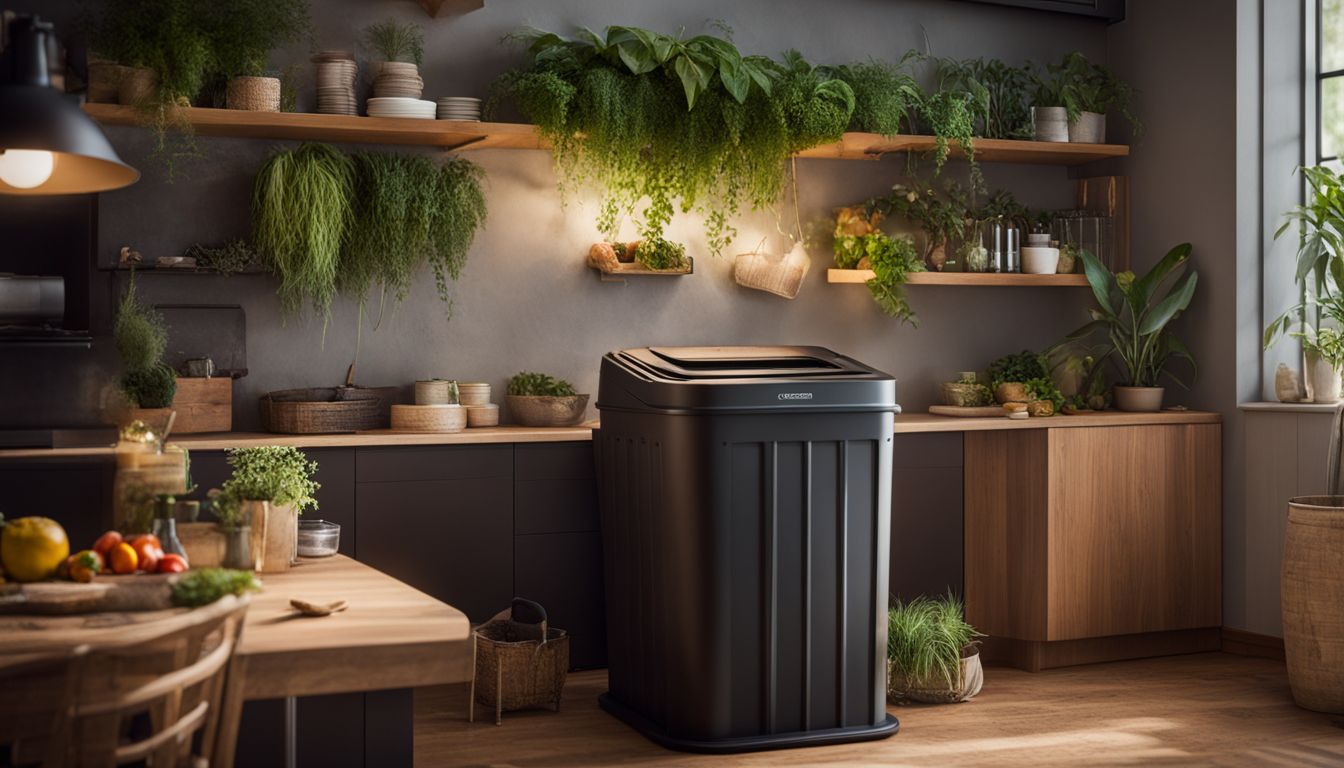
Composting in an apartment can be challenging due to the lack of outdoor space. Without a backyard or garden, it may seem difficult to find a suitable place for composting. However, there are alternatives available that can work well in small living spaces.
Indoor composting methods like vermicomposting and bokashi composting can be done right in your apartment without the need for outdoor areas. These techniques use worms or fermentation to break down food scraps into nutrient-rich compost.
So even if you don’t have access to an outdoor area, you can still practice composting and contribute to sustainable waste management in your apartment.
Potential odor and pests
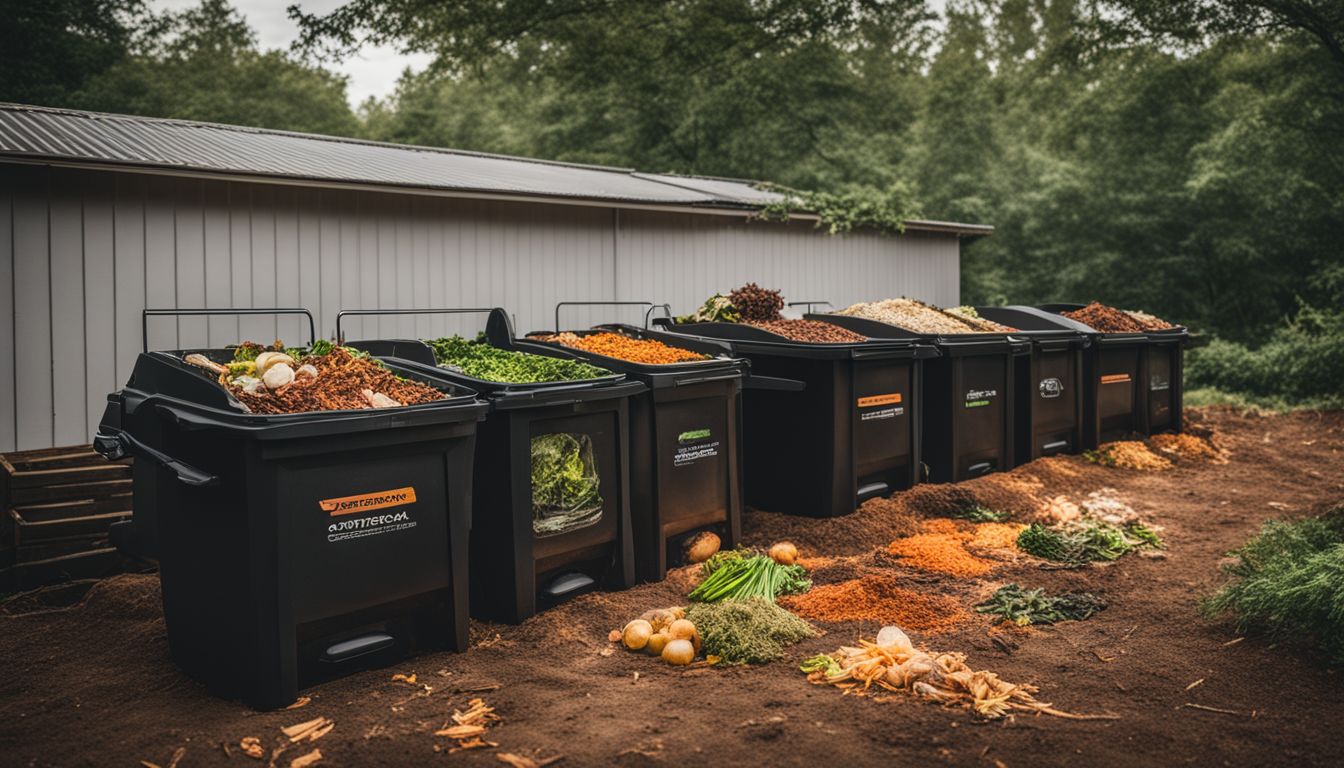
Composting in an apartment may raise concerns about potential odor and pests. However, there are ways to address these issues effectively. By properly managing your composting system and following some simple tips, you can minimize any unpleasant smells and prevent pests from becoming a problem.
For example, adding equal amounts of carbon-rich materials like shredded newspaper or dried leaves can help absorb odors. It’s also essential to maintain a proper balance of nitrogen-rich food scraps and carbon-rich materials to avoid attracting pests.
Regularly turning the compost pile or using worm bins can help accelerate decomposition while minimizing odor production. By taking these precautions, you can successfully compost in your apartment without worrying about unwanted smells or critters invading your space.
Indoor Composting Options
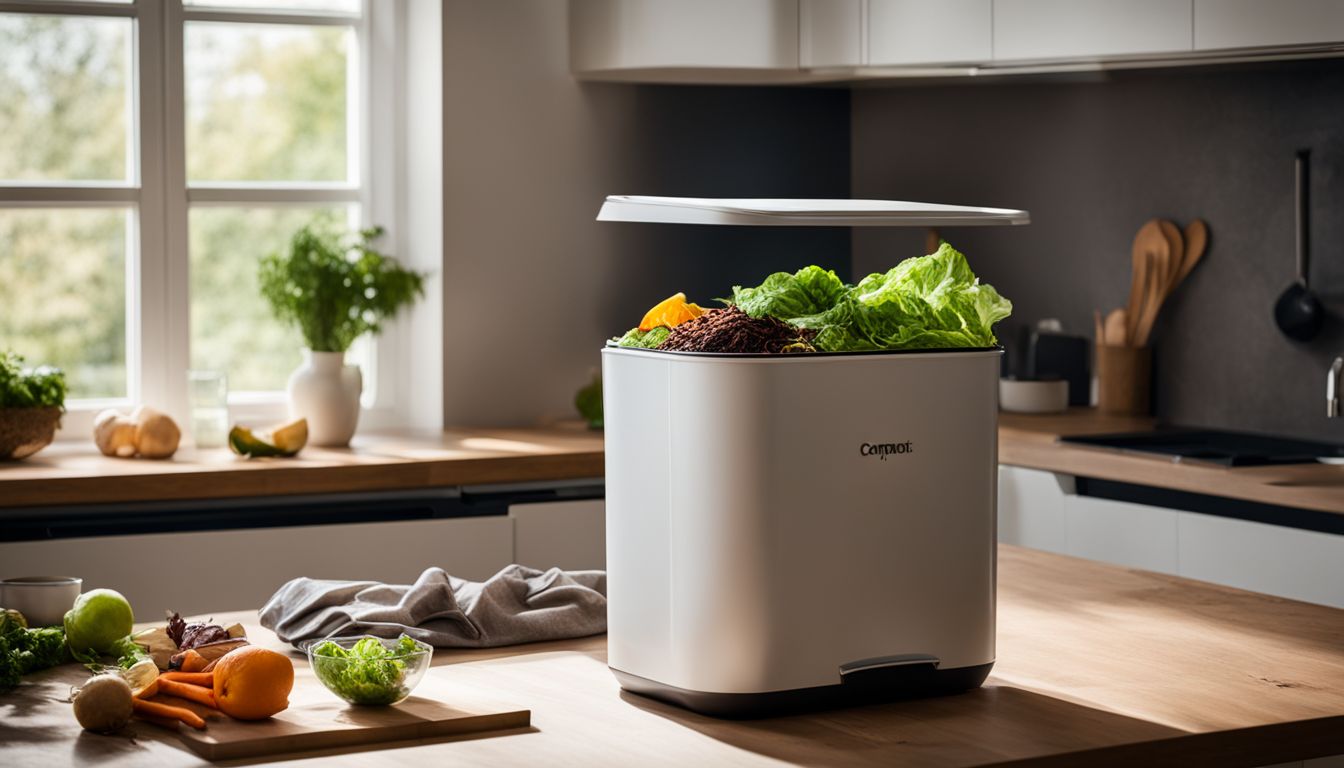
There are several indoor composting options for apartment dwellers, including vermicomposting using worms, bokashi composting using fermentation, and electric composters.
Vermicomposting (using worms)
-93014418.jpg)
Vermicomposting, also known as composting with worms, is an excellent option for apartment dwellers who want to compost indoors. With vermicomposting, you can use specially designed worm bins, such as the Sacred Resources Composter or Living Composter, to turn your food scraps into nutrient-rich compost.
These bins are compact and odor-free, making them ideal for small spaces. All you need are some red worms and a mix of food waste and bedding material like shredded newspaper. The worms will break down the organic matter, creating valuable compost that you can use for your plants.
Vermicomposting is an efficient and sustainable way to manage kitchen waste in your apartment while reducing landfill waste at the same time.
Bokashi composting (using fermentation)
-93014147.jpg) Bokashi composting is a great option for apartment dwellers who want to compost without the need for worms or outdoor space. It involves fermenting your food scraps using a special mix of beneficial microorganisms called “bokashi bran.” To start, you’ll need an airtight container and bokashi bran.
Bokashi composting is a great option for apartment dwellers who want to compost without the need for worms or outdoor space. It involves fermenting your food scraps using a special mix of beneficial microorganisms called “bokashi bran.” To start, you’ll need an airtight container and bokashi bran.
Simply layer your food scraps with the bran in the container and press down firmly to remove any air. Seal it tight and let it ferment for about two weeks. The fermentation process eliminates odor and breaks down the waste into nutrient-rich compost that can be used in indoor plants, balcony gardens, or donated to community gardens.
Bokashi composting is convenient, efficient, and perfect for small-scale composting in apartments.
Electric composters
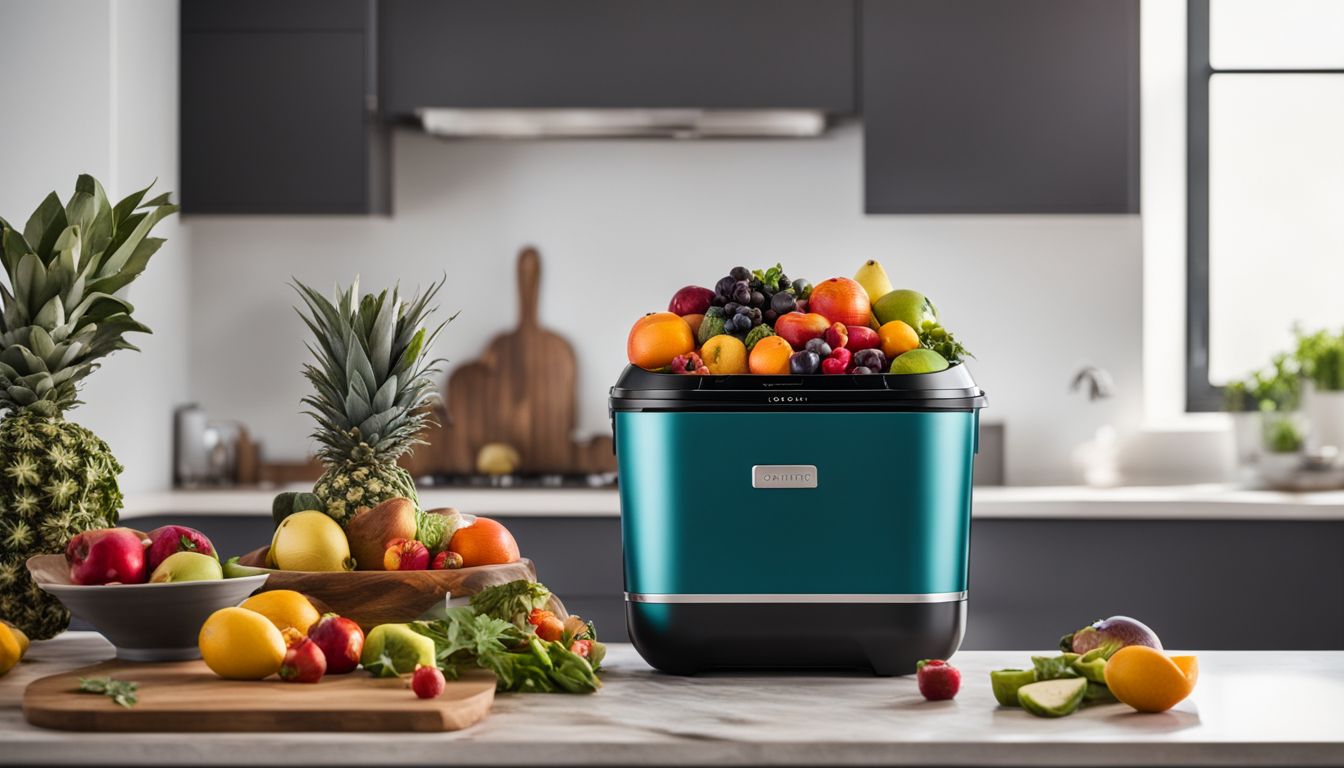
Electric composters are a convenient option for apartment dwellers who want to compost their food scraps but have limited space or don’t want to deal with the potential odor and pests that can come with traditional composting methods.
These composters use electricity to speed up the decomposition process, allowing you to turn your kitchen waste into nutrient-rich soil in just a few weeks. Some electric composters even have built-in filters or air circulation systems to control odors and prevent pests from getting inside.
With an electric composter, you can easily manage your food waste while keeping your apartment clean and odor-free.
Choosing the Right Composting Method for Your Apartment
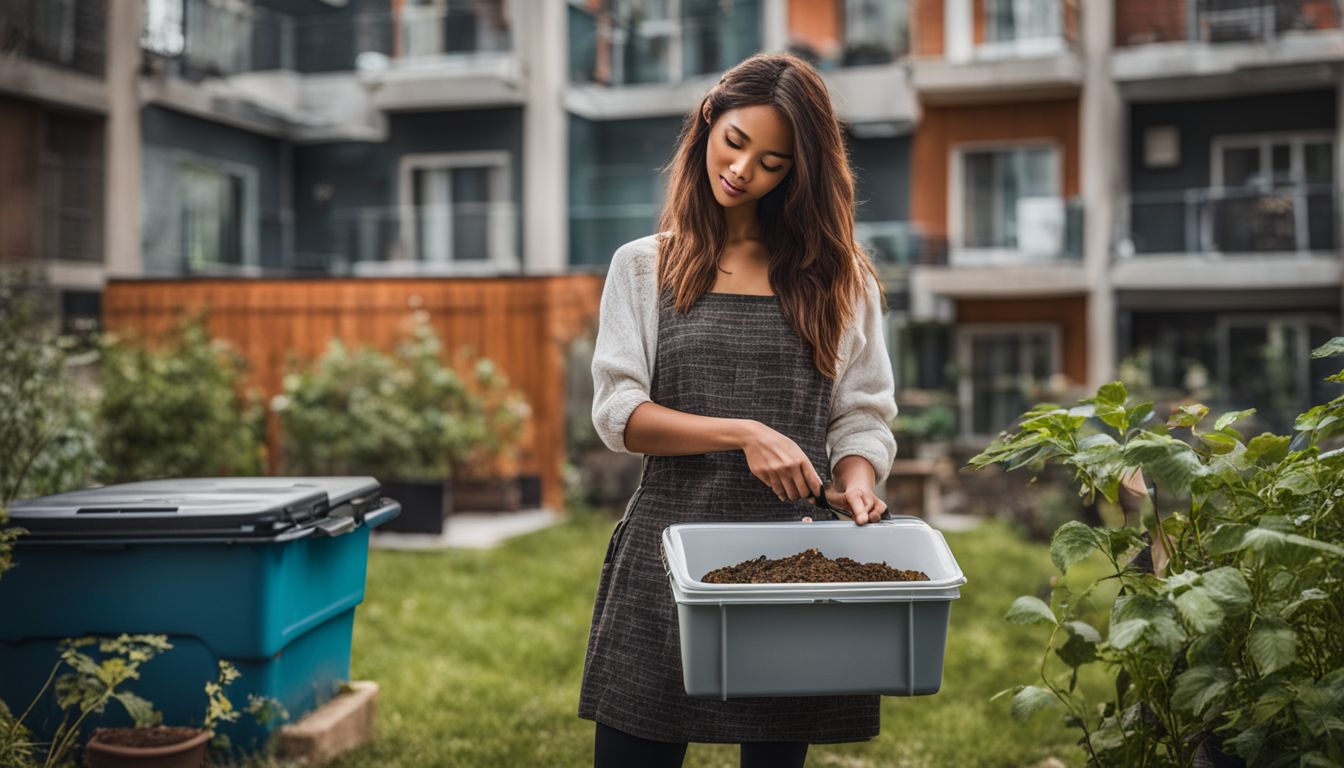
Evaluate your space restrictions, lifestyle, and odor control needs to determine the perfect composting method for your apartment. For a detailed guide on how to make the right choice, keep reading!
Considering space restrictions
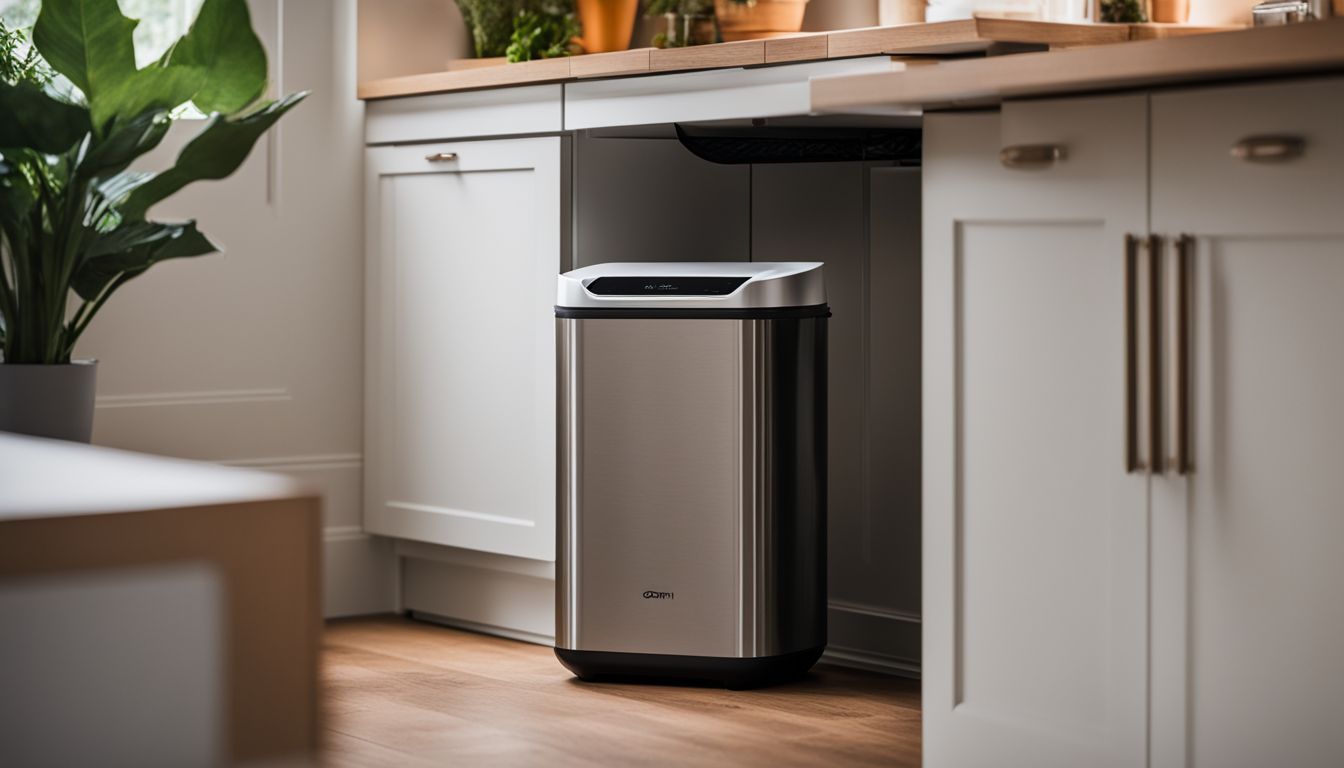
When composting in an apartment, it’s important to take into account the limited space you have available. Since apartments often lack large outdoor areas, you’ll need to find a composting method that can fit within your living space.
This may mean using smaller compost bins or opting for indoor composting options like vermicomposting or bokashi composting. By considering your space restrictions and choosing the right method, you can still successfully compost in your apartment and reduce waste.
Assessing your lifestyle and commitment level
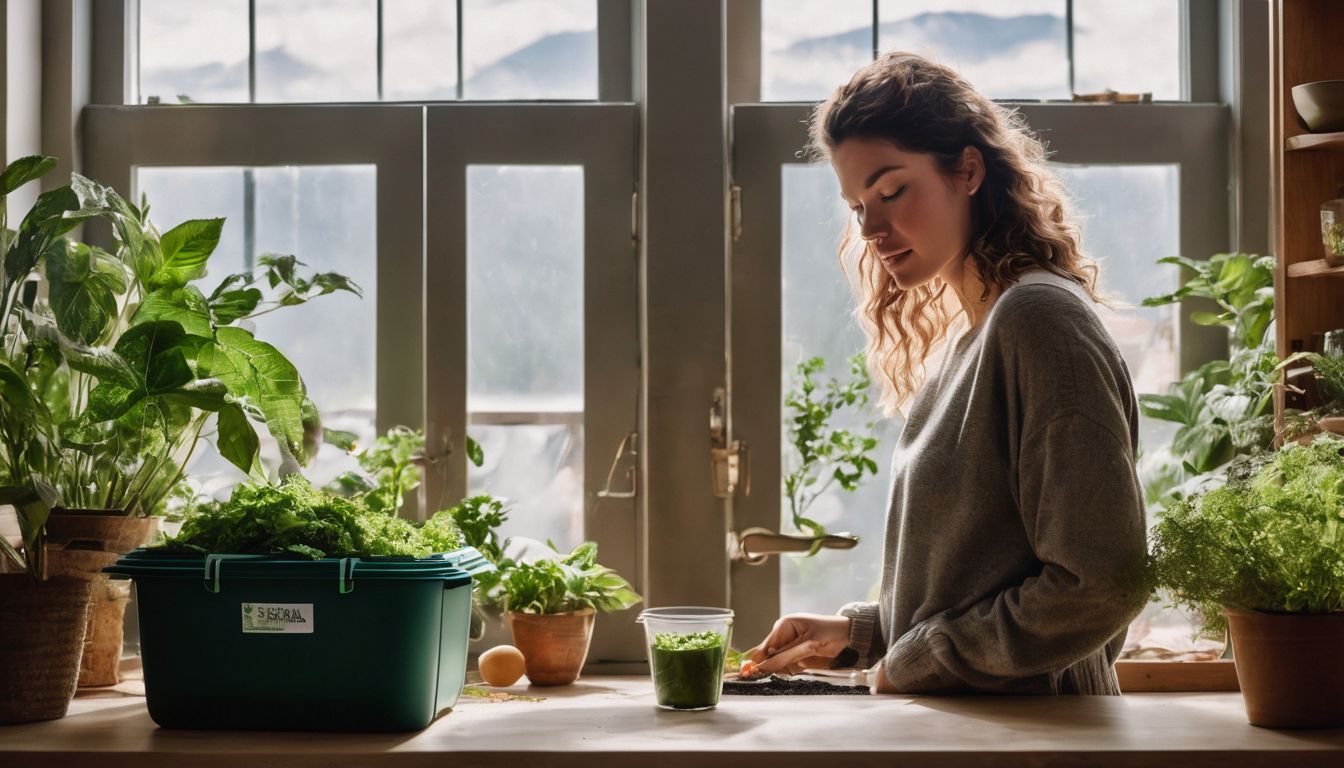
To choose the right composting method for your apartment, it’s important to consider your lifestyle and commitment level. Composting requires regular maintenance and attention, so you need to determine if you have the time and dedication to take care of it.
Think about how often you cook at home and generate food waste that can be composted. If you’re someone who eats out most of the time or doesn’t produce a lot of organic waste, a smaller-scale option like vermicomposting with worms may be more suitable.
On the other hand, if you have a busy schedule but still want to compost, an electric composter might be a good choice as it requires less maintenance. Take into account your daily routines and habits when deciding which composting method will fit best into your lifestyle in terms of time commitment and convenience.
Evaluating odor control and maintenance needs
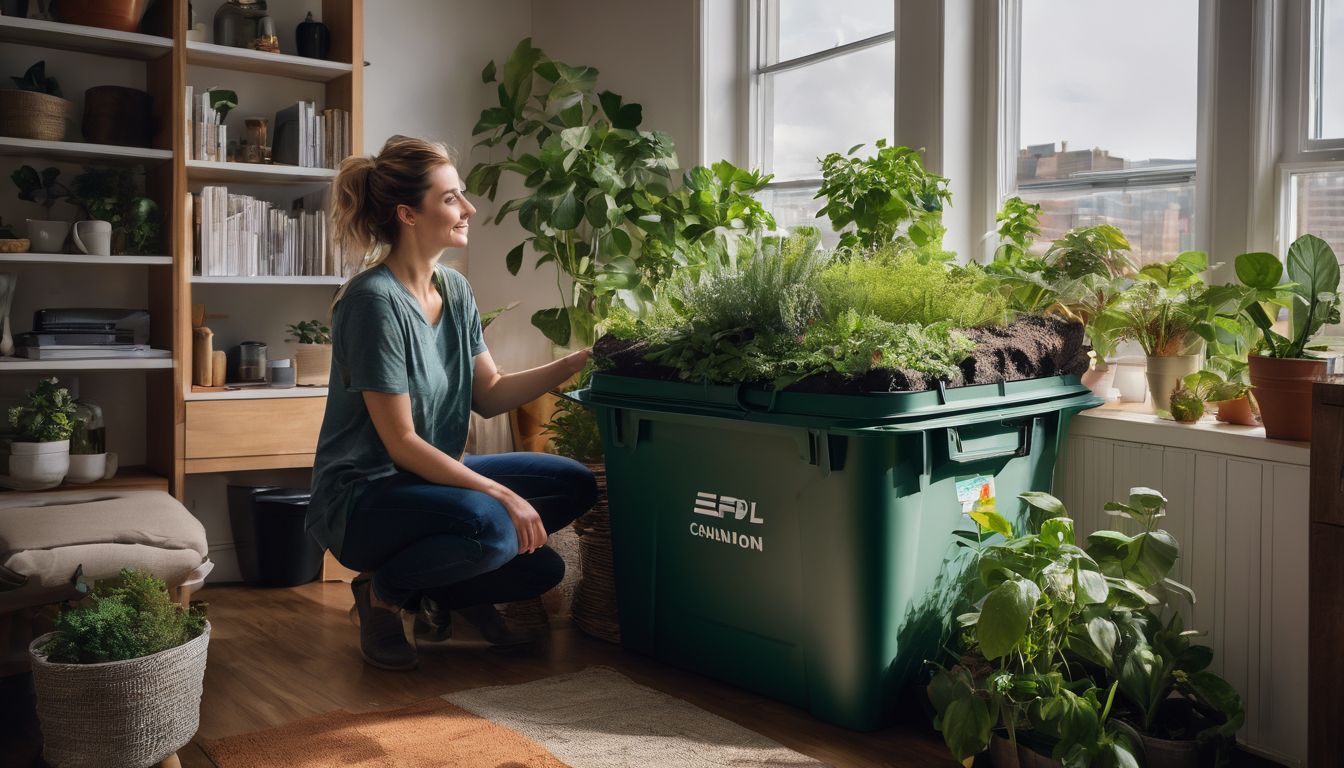
To ensure successful apartment composting, it’s important to consider odor control and maintenance needs. Since you’ll be composting indoors or in a limited space, managing odors is crucial.
Choose a composting method that minimizes smell, such as vermicomposting with worms or using Bokashi fermentation. Regularly add carbon-rich materials like shredded newspaper to help absorb any unpleasant smells.
Regarding maintenance, assess how much time and effort you’re willing to put into maintaining the composting system. Some methods require more attention than others, so choose one that fits your lifestyle and commitment level.
Tips for Successful Apartment Composting
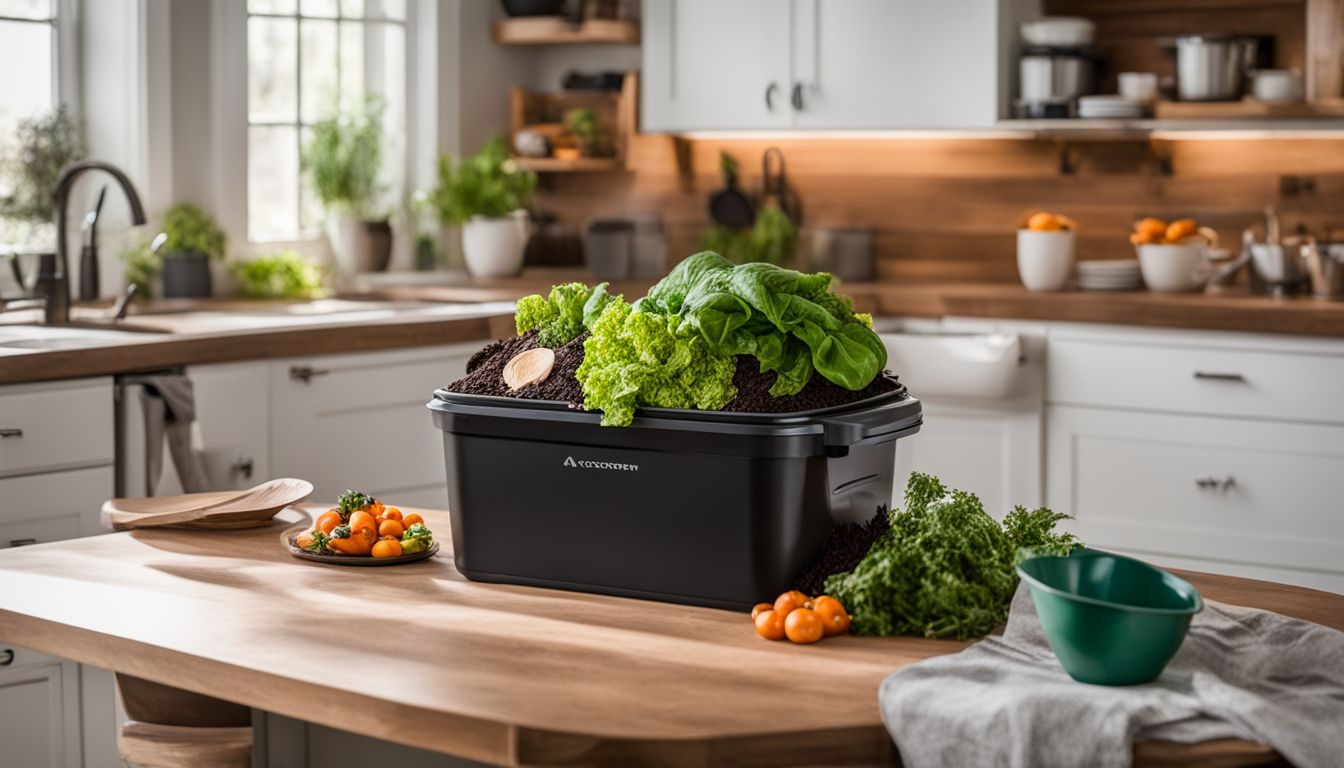
Properly maintaining the composting system is essential for successful apartment composting.
Managing food scraps effectively
To effectively manage food scraps when composting in an apartment, it’s important to follow a few key steps. First, separate your food waste from other trash by using a designated container or bin specifically for compostable materials.
This helps prevent contamination and makes it easier to transfer the scraps to your composting system. Next, chop or shred larger pieces of food waste into smaller pieces to speed up the decomposition process.
Then, add a balance of carbon-rich materials like shredded newspaper or dry leaves to absorb excess moisture and prevent odors. Remember to regularly mix the contents of your compost bin or turn the pile if you have one, as this helps aerate the mixture and accelerate decomposition.
Balancing carbon and nitrogen ratios
Balancing the carbon and nitrogen ratios in your apartment compost is important for successful decomposition. Carbon-rich materials, also known as “browns,” provide energy to the microorganisms that break down organic waste.
Examples of browns include shredded newspaper, dried leaves, or cardboard. Nitrogen-rich materials, or “greens,” provide nutrients for the microorganisms. These can be food scraps like fruit peels and coffee grounds.
To maintain a healthy compost pile, it’s crucial to have a balanced ratio of carbon to nitrogen. A good rule of thumb is to aim for roughly equal amounts by volume – about 50% browns and 50% greens.
If your compost smells bad or is not decomposing properly, you may need to adjust the ratio: add more browns if it’s too wet or smelly, and more greens if it’s not breaking down quickly enough.
Properly maintaining the composting system
Maintaining your composting system is crucial to ensure its effectiveness and prevent any issues. Regularly check the moisture levels of the compost, aiming for a slightly damp but not too wet consistency.
Turn or mix the contents of your compost regularly to promote decomposition and prevent odors. Remember to balance the carbon-rich materials (like shredded newspaper) with nitrogen-rich food scraps to maintain an optimal ratio.
If you notice any pests or bad smells, adjust your compost mixture or cover it with additional carbon-rich materials. By properly maintaining your apartment composting system, you can create nutrient-rich soil for your plants while minimizing waste in a sustainable way.
Creative Solutions for Apartment Composting
Explore community composting programs, sharing your composting efforts with neighbors, and finding alternative ways to upcycle food waste.
Community composting programs
Community composting programs are a great option for apartment dwellers who want to compost but don’t have the space or resources to do it on their own. These programs allow you to bring your food scraps to a designated collection site where they will be composted on a larger scale.
Some cities and neighborhoods offer curbside compost collection, making it even more convenient for residents. By participating in community composting programs, you can contribute to reducing landfill waste and creating valuable nutrients for gardens and green spaces in your community.
Sharing composting with neighbors
Sharing composting with neighbors is a great way to maximize the benefits of apartment composting. You can form a community composting program where each neighbor contributes their food scraps to a shared compost bin or pile.
This helps reduce waste collectively and creates nutrient-rich soil for everyone’s plants. Additionally, sharing composting responsibilities fosters a sense of community and cooperation among neighbors.
It’s an eco-friendly solution that brings people together while promoting sustainable living in apartments.
Upcycling food waste in other ways
Another creative solution for apartment composting is to upcycle food waste in other ways. Instead of throwing away certain scraps, you can find alternative uses for them. For example, vegetable peels and coffee grounds can be used as natural fertilizers for indoor plants or gardens.
You can also make homemade vegetable broth by boiling leftover veggie scraps. Additionally, some food scraps like banana peels and eggshells can be used as natural pest repellents in the garden.
By finding new purposes for your food waste, you can further reduce your environmental impact while maximizing the use of resources.
Conclusion
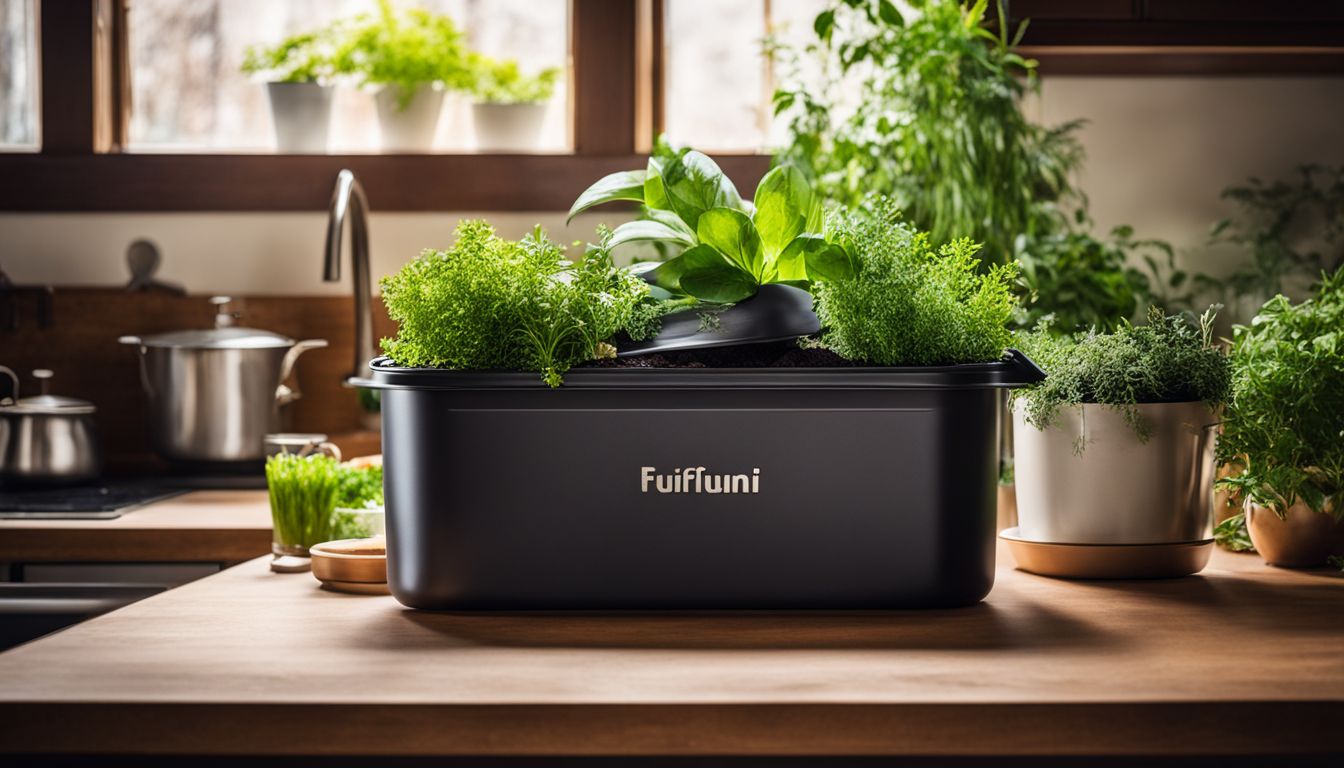
Composting in an apartment may seem challenging, but with the right methods and techniques, it can be done successfully. Whether you choose vermicomposting, bokashi composting, or electric composters, there are options that work well for small spaces.
By managing your food scraps effectively and finding creative solutions like community composting programs or upcycling waste in other ways, you can make a positive impact on the environment even without a backyard.
So don’t let limited space stop you from embracing sustainable waste management – start apartment composting today!
FAQs
1. What is apartment composting?
Apartment composting is a form of small-scale composting done in limited spaces, like city apartments or places without a yard.
2. How does worm composting work in an apartment?
Worm composting, also known as vermicomposting, uses worms to convert food waste into rich soil. In an apartment, it’s an odor-free and eco-friendly method of handling kitchen scraps.
3. Can you share some apartment-friendly composting methods?
Balcony composting and indoor bins are popular ways for sustainable waste management in apartments. Using hack methods can make the process even simpler for urban dwellers living in small spaces.
4. Are there any smells when I start to compost in my apartment?
With proper care and techniques, like balancing ‘green’ and ‘brown’ materials in your bin or using worms for composting, you can keep your urban home odor-free while creating nutrient-rich soil.
5.What are some tips for people who wish to start apartment gardening with their own homemade green waste?
Urban-dwellers interested in making use of limited space can look at balcony gardening and indoor plants that thrive on fresh homemade fertilizer from daily kitchen scraps converted through small-scale indoor apartments’ vermicomposting process.
6.How do City-dwellers go about Composting without a backyard ?
City dwellers can opt for Indoor composter bins which would not require much space & serve as perfect solution towards Composting without having access to garden.

As a dedicated mother and passionate software developer, she weaves her diverse experiences into captivating stories that inspire and engage readers. Emma's love for sustainable living and environmental consciousness permeates both her personal and professional life. When she's not immersed in the world of coding and software development, Emma can be found nurturing her family and tending to her thriving organic garden. Her commitment to sustainable practices extends to every aspect of her life, from repurposing household items to embracing eco-friendly technologies.

